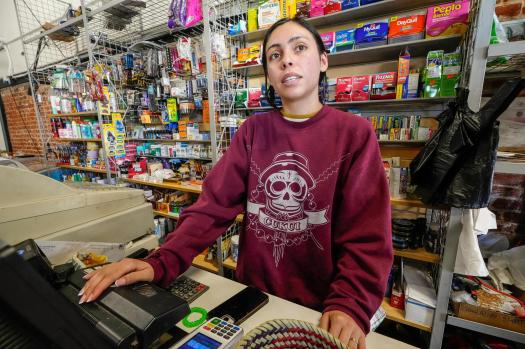In federal court this week, a former employee of the California Employment Development Department acknowledged that he had unlawfully obtained over $768,000 in COVID-19 unemployment benefits for deceased individuals and unwitting, ineligible applicants.
On Wednesday, January 8, Carson resident Phyllis Hope Stitt, 61, entered a guilty plea to one count of conspiracy to commit mail fraud and bank fraud for submitting at least 29 false unemployment insurance claims. Kenneth Earl Riley, 64, of South Los Angeles, Stitt’s ex-boyfriend, entered a guilty plea to the same allegation.
On May 9, Stitt and Riley will be sentenced to a maximum of 30 years in jail.
The two committed the deception between March 2020 and September 2021 while Stitt was working at the EDD, where she processed claims and determined whether claimants qualified for unemployment benefits, according to a plea deal with federal authorities.
At least ten victims who did not consent to the filing of unemployment claims on their behalf were involved in the plot.
When people applied for unemployment benefits, Stitt obtained their names, birth dates, Social Security numbers, and other identifying information. According to the plea bargain, she subsequently submitted false EDD applications for unemployment and COVID-19 payments for people who were not eligible since they were either deceased, employed, or not unemployed as a result of the epidemic.
Stitt provided fake information claiming claimants had worked in California, had lost their jobs as a result of the pandemic, and were eligible for benefits in order to get EDD to approve the fraudulent applications. She also gave the EDD false information about the claimants’ driver’s licenses and job histories.
Stitt included return mailing addresses Riley could access on the phony applications, backdated the jobless claims to maximize benefits, and took control of payments.
According to the plea deal, Riley and others utilized debit cards and accounts made as a result of the fraudulent applications to conduct bank transfers, retail transactions, and ATM cash withdrawals in Los Angeles and San Bernardino counties.
In a 2021 investigation, the California State Auditor pointed out that at least $10.4 billion was paid out for potentially fraudulent claims since the EDD did not strengthen its fraud detection efforts until months into the pandemic.
According to the investigation, EDD did not create payment barriers for claimants’ claims, thus even as late as December 2020, about a year after the first COVID-19 case was reported in the United States, claimants were still able to collect benefits using dubious locations.
Additionally, EDD’s decision to eliminate a crucial protection against payment to claimants whose identities it had not verified resulted in $1 billion of the $10.4 billion paid for dubious claims.
In one case, the U.S. Department of Labor issued an arrest affidavit alleging that Edward Kimof of Los Angeles filed at least 400 false pandemic claims with the EDD. According to authorities, at least 120 of those claims were submitted using the names of prisoners housed in Californian jails.
Since then, the EDD claimed to have secured restitution judgments resulting from criminal convictions for fraud involving the epidemic that totaled close to $20 million.
The FBI, the California Employment Development Department’s Investigation Division, and the Office of Inspector General at the U.S. Department of Labor all looked into the case against Stitt and Riley. The U.S. Attorney’s Office was the prosecuting attorney.
EDD stated in an email on Thursday that it had a zero-tolerance policy for fraud. In addition to performing extensive background checks on EDD and any associated system vendor employees, we also have stringent policies and procedures in place to control employee access to customer and program data and to ensure that standards are met for appropriately protecting sensitive data.




